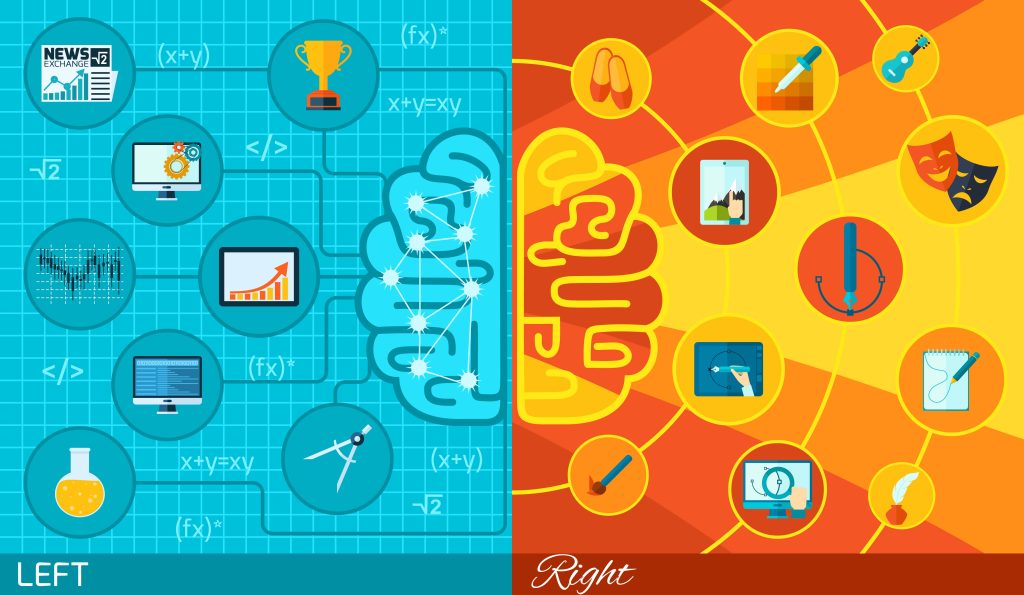In today’s fast-paced world, the number of tasks we juggle is continually increasing. As a result, it’s not uncommon to experience a growing number of ideas, projects, and tasks that are left incomplete. These unfinished tasks may seem harmless, but they accumulate into something more significant than just a pile of to-do lists: the mental load. The mental load of half-finished ideas is a real phenomenon that can have a profound impact on our well-being, productivity, and overall sense of fulfillment. In this article, we’ll explore the cognitive burden of managing incomplete ideas, why they can be so overwhelming, and how to effectively manage them.

What is the Mental Load?
The concept of mental load is widely discussed in psychological and productivity circles. It refers to the invisible cognitive effort required to keep track of and manage various tasks, responsibilities, and thoughts. It’s the constant mental check-listing, planning, and organizing that happens in the background of our minds. This mental load often includes managing schedules, keeping up with deadlines, and remembering to follow through on various obligations.
In the context of half-finished ideas, mental load intensifies because these incomplete thoughts or tasks don’t stay static. Instead, they repeatedly take up space in our minds, demanding attention even when we’re not consciously focused on them. It’s this ongoing mental processing that leads to cognitive fatigue and an overall sense of being overwhelmed.
The Cognitive Burden of Incomplete Ideas
Half-finished ideas, whether work-related or personal, are particularly burdensome because they require constant mental energy. Each time you think about an unfinished project or an idea that hasn’t come to fruition, it pulls your attention away from other tasks and can create a sense of unfinished business. Here are some reasons why half-finished ideas are so mentally taxing:
1. Lack of Closure
One of the primary reasons half-finished ideas are so burdensome is the absence of closure. When an idea or project is left incomplete, your brain continues to ruminate over it. The brain craves closure, and without it, it is constantly reminded of the unresolved nature of these thoughts. This prevents the mind from fully relaxing and focusing on other tasks, leading to mental fatigue.
2. Constant Cognitive Switching
Managing multiple half-finished ideas involves frequent switching between different tasks, thoughts, and concepts. This constant shifting of focus, also known as cognitive switching, can drain mental resources. Studies have shown that cognitive switching can reduce efficiency and increase cognitive load. As you jump between ideas, the brain must reorient itself each time, consuming more energy than if you were to focus on one task at a time.
3. Increased Anxiety and Stress
Leaving ideas unfinished can lead to feelings of anxiety. The more ideas you have in limbo, the more likely it is that your brain will perceive them as tasks that still need to be completed. This increases stress levels, as your mind is subconsciously preoccupied with these incomplete thoughts, and you are constantly reminded of their unfinished status.
The Impact of Half-Finished Ideas on Productivity
Managing multiple half-finished ideas not only impacts your mental health but can also harm productivity. Here are several ways in which these ideas affect your output:
1. Diminished Focus and Engagement
When you’re mentally split between several unfinished tasks, it’s challenging to focus fully on any single one. This fragmented attention means that you’re not able to give your best to any project, leading to subpar results across the board. In fact, research suggests that individuals with numerous ongoing tasks are less engaged and perform less efficiently than those who focus on one task at a time.
2. Reduced Creativity
A cluttered mind can stifle creativity. When the brain is bogged down with numerous unfinished ideas, there is less room for innovative thinking. Creativity requires mental space to explore new ideas, but if you’re constantly thinking about half-finished projects, it becomes difficult to tap into your creative potential.
3. Procrastination
As the mental load of unfinished ideas grows, procrastination can set in. The overwhelming nature of juggling multiple incomplete tasks can paralyze decision-making, leading you to put off important actions. This procrastination further exacerbates the issue, creating a cycle that’s difficult to break.
Strategies for Managing the Mental Load of Half-Finished Ideas
While the mental load of half-finished ideas can feel overwhelming, there are effective strategies for managing and reducing this cognitive burden. Here are some practical steps to help clear your mind and improve your productivity:
1. Create a “Brain Dump” List
To alleviate the mental load, take the time to write down all your unfinished ideas and tasks. By putting everything on paper, you free up mental space. This technique, often referred to as a “brain dump,” helps get everything out of your mind and onto a manageable list. Once the ideas are on paper, you can prioritize them and start taking action on the most important ones.
2. Set Clear Goals and Deadlines
Having clear, defined goals for each idea helps provide closure and direction. Set deadlines for each task and break them down into smaller, actionable steps. By establishing concrete timeframes, you reduce the ambiguity surrounding each project, making it easier to focus and complete them.
3. Adopt the Pomodoro Technique
The Pomodoro Technique is a time-management method where you work in focused intervals (usually 25 minutes) followed by a short break. This technique helps prevent mental burnout and ensures that you remain focused on one task at a time. By dedicating short bursts of time to specific ideas, you can tackle half-finished projects more effectively.
4. Use the “Two-Minute Rule”
The two-minute rule, coined by productivity expert David Allen, suggests that if a task will take two minutes or less to complete, do it immediately. Applying this rule to small unfinished ideas or tasks helps you quickly resolve them and prevents them from lingering in your mind.
5. Focus on Completion Over Perfection
Striving for perfection can often keep tasks incomplete. Instead, focus on completing tasks and ideas to a satisfactory level. Once a task is finished, it no longer occupies mental space, leaving you free to move on to the next one. Completing tasks, even imperfectly, helps reduce mental load and anxiety.
Conclusion
The mental load of half-finished ideas is a growing challenge in today’s busy world. As the demands on our time and attention increase, the mental effort of managing incomplete tasks can have a serious impact on our well-being, productivity, and creativity. By understanding this mental load and implementing strategies to manage it effectively, you can reduce cognitive fatigue, improve your focus, and enhance your overall productivity. It’s important to recognize the power of closure, prioritize completion over perfection, and actively manage your mental workload.
By taking these steps, you can make space in your mind for more meaningful work, ensuring that your half-finished ideas don’t weigh you down any longer.
References:
- American Psychological Association (2021) Mental Load and Its Impact on Mental Health. Available at: https://www.apa.org (Accessed: 25 June 2025).
- Harvard Business Review (2022) The Hidden Cost of Mental Load. Available at: https://hbr.org (Accessed: 25 June 2025).
- Psychology Today (2021) Why Your Mind Keeps Circling Around Unfinished Tasks. Available at: https://www.psychologytoday.com (Accessed: 25 June 2025).






